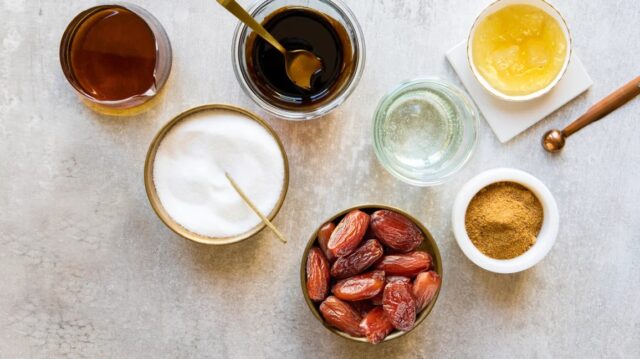Sugar substitutes are typically classified into two categories: artificial sweeteners and natural sweeteners. Artificial sweeteners are chemical compounds that are synthesized in a laboratory, while natural sweeteners are derived from plants.
Artificial sweeteners are widely used in the food industry due to their intense sweetness and zero-calorie content. Some of the most commonly used artificial sweeteners include aspartame, saccharin, sucralose, and acesulfame potassium. These sweeteners have been extensively studied and found to be safe for consumption in moderate amounts.
One of the main benefits of artificial sweeteners is that they do not affect blood sugar levels, making them a suitable alternative for people with diabetes or those looking to control their blood sugar levels. Additionally, they do not contribute to tooth decay and can be useful for people looking to reduce their calorie intake.
However, some studies have suggested that artificial sweeteners may have negative health effects. For instance, a study conducted in 2017 found that consuming artificially sweetened beverages was associated with an increased risk of stroke and dementia. Another study found that artificial sweeteners may alter gut bacteria, leading to metabolic disorders.
Natural sweeteners, on the other hand, are considered to be a healthier alternative to artificial sweeteners. These sweeteners are derived from plants and are generally lower in calories than traditional sugar. Some of the most commonly used natural sweeteners include stevia, monk fruit, and erythritol.
Stevia, for example, is a natural sweetener derived from the leaves of the stevia plant. It is known for its intense sweetness and has zero calories. Monk fruit, another natural sweetener, is derived from the monk fruit plant and is also calorie-free. Erythritol is a sugar alcohol that is found in some fruits and vegetables and is also calorie-free.
Natural sweeteners have been found to be safe for consumption and have several potential health benefits. For instance, stevia has been found to lower blood sugar levels and blood pressure in people with diabetes and hypertension, respectively. Monk fruit has been found to have antioxidant properties, which can help protect against cellular damage caused by free radicals.
However, natural sweeteners may also have some potential drawbacks. For example, they may cause digestive issues, such as bloating, gas, and diarrhea. Additionally, some natural sweeteners may have a bitter aftertaste, which can be unpleasant for some people.
In conclusion, consuming sugar substitutes can be a healthy alternative to traditional sugar, as long as they are consumed in moderation. Artificial sweeteners are generally considered safe for consumption, but some studies suggest they may have negative health effects. Natural sweeteners are a healthier alternative, but they may cause digestive issues and have a bitter aftertaste. It is essential to choose sugar substitutes that work for you and consume them in moderation to reap their potential health benefits. Additionally, it is important to note that sugar substitutes should not be used as a license to consume unhealthy amounts of other high-calorie or high-fat foods, as this can negate any potential health benefits.







